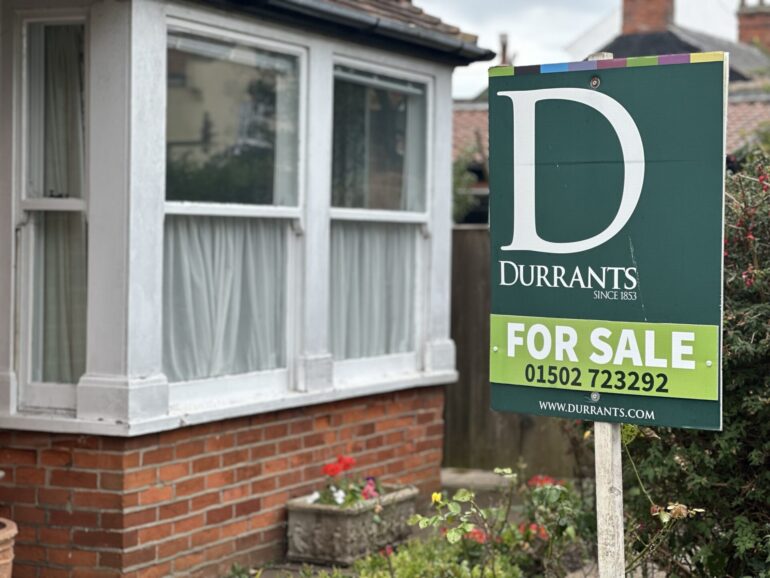The difference between the original asking price of homes and the final sale price achieved by sellers has narrowed since the Autumn Budget, now standing at 17.4%, down from 20% in September of last year, according to the latest market analysis by eXp UK.
The data shows that sellers are increasingly aligning their price expectations with market conditions, with both a marginal increase in the average sold price and a slight reduction in asking prices suggesting that buyers and sellers are finding common ground to close deals.
The South West has seen the most significant improvement, with the average sold price now 15.9% below the asking price, compared to 21.1% prior to the Autumn Budget. The South East and Wales have also experienced notable shifts, with the price gap narrowing by 4.3% and 3.1% respectively.
London remains home to the narrowest price gap, with buyers paying an average of just 5.6% below the asking price. In contrast, the North East has the largest market gap at 29.6%, while Scotland is the only part of Britain where the gap has widened, now sitting at 22.6%, up from 22.4% last September.
Adam Day, head of eXp UK, said: “Since Labour delivered its first big budget, the market gap has started to narrow between the asking price expectations of the nation’s sellers and the reality of what buyers are willing to pay.
“This has come largely as a result of a higher sold price achieved, as well as a lower entry point with respect to asking, suggesting that both buyers and sellers have been more willing to adjust their expectations in order to get a deal over the line.
“This has no doubt been driven, in part, by the Government’s decision not to extend current stamp duty relief thresholds beyond March of this year, and it’s fair to say they’ve done little else to try and stimulate the market to offset the higher costs that buyers face as of 1 April.
“The good news is that the improvements in market health being seen should remain for the long-term and so we should continue to see sellers achieving a good price for their property long beyond April’s stamp duty deadline.”




